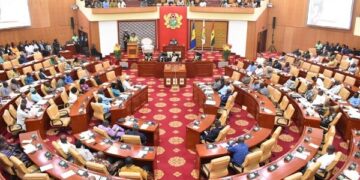Ranking Member on the Finance Committee of Parliament, Dr Cassiel Ato Forson expects the Ghana cedi to depreciate further from January to June this year before a possible IMF board approval in the second quarter of 2023.
He says Ghana’s economy will record one of the worst non-oil GDP growths due to the impact of the debt restructuring measures of the government and other harsh fiscal and monetary policies.
In a social media post, Dr. Ato Forson projected a bleak economy for the year 2023.
This year, Ghana’s economy will record one of the worst non-oil GDP growths due to the impact of the debt restructuring and a plethora of extremely tough fiscal and monetary policies.
“The haircut on domestic bonds and Eurobond is expected to adversely impact the health of the banking sector, local businesses, and individuals! Also, Bilateral debt restructuring will lead to government’s foreign-financed projects being abandoned. Unemployment will worsen due to the freeze on employment, debt restructuring, poor business climate, and massive austerity. Ghana will default in the payment of interest and principal on domestic bonds, Eurobonds, and most of our bilateral loans in 2023.”
He further indicated that the events will be compounded by expected lay-offs from the financial sector due to the impact of the debt restructuring and expected lay-offs from gov’t foreign-financed projects.
He also indicated that the complete reversal of discount on import values of goods and vehicles coupled with the introduction of the 2.5 % increase in VAT and other taxes on businesses will keep prices of goods and services “high, and, in some cases, higher than the current prices.”
“Also, the government’s policy of automatic adjustment of electricity tariffs will exacerbate the high cost of living in 2023. Inflation is expected to be above 30% for the most part of 2023,” he added.
He also does not see the government’s gold for oil policy-making any major impact on the price of petroleum products.
“The cedi will inevitably depreciate further, from Jan to June. Before a possible IMF board approval in Q2, 2023.”





















































































